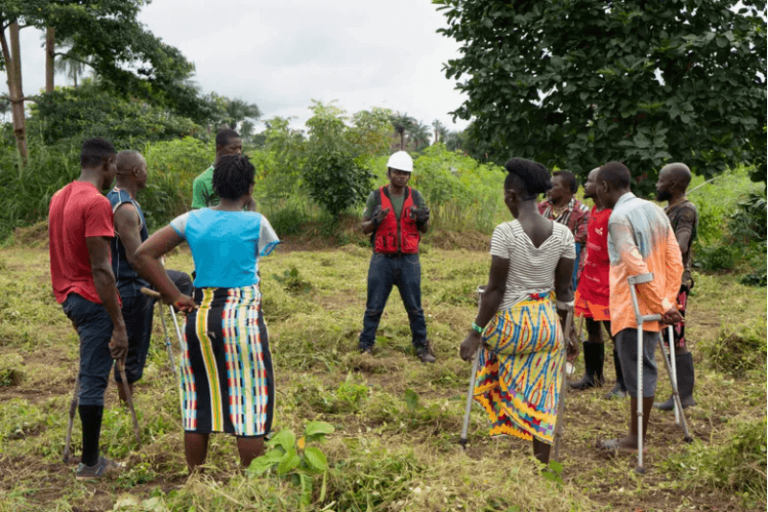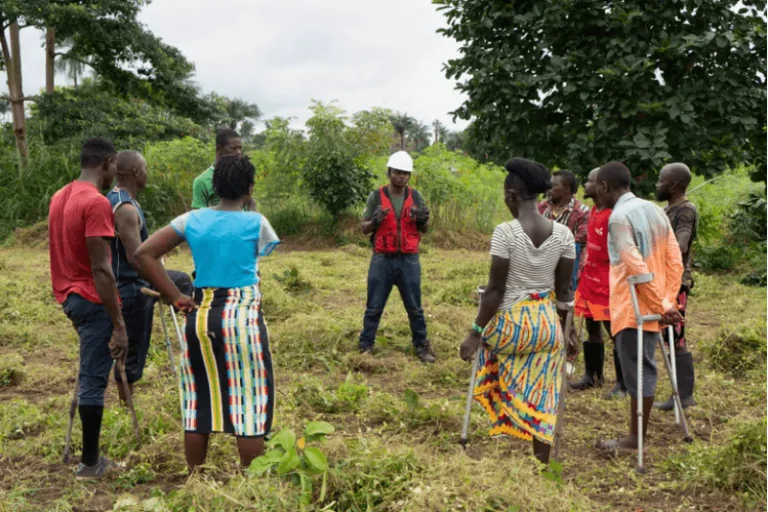

Amputees in Sierra Leone face severe social and economic challenges. The civil war from 1991 to 2002 left most of them without limbs because the rebels used amputation as a form of terror. To this day decades later amputation rates are still high due to traffic accidents, poor healthcare services and delayed treatment. Despite the Disability Act of 2011 which promised equal opportunities but still the discrimination continues. Amputees are often marginalized or seen as symbols of past conflict and left with few options for survival.
Some amputees who feel determined to reclaim their independence are turning to farming. In fact even small scale agricultural projects are providing them more income along with the feel of purpose and dignity. Initiatives such as crop cultivation, organic fertilizer creation and the management of small farms teach amputees how to overcome their physical limitations, build their confidence and reintegrate into their communities.
For many, farming acts as a profound act of resilience. It allows amputees to move away from such a life of begging and depending on others thus opening up channels for self sufficiency. They not only start growing food but also grow hope and showing that their lives can thrive well despite the challenges they experience. Through farming they acquire more skills to support their family and inspire others in comparable situations.
The amputee farming programs try to change the mindset. They make the participants believe that their circumstances are opportunities for growth and not barriers. These projects also bring about a sense of community in addition to the practical skills of agriculture. Participants find strength in working together by sharing their experiences and supporting one another.
Sierra Leone’s amputees are still very much at the uphill stage. Support or schemes through the government is very minimal. Most of the promises in fact remain unmet in regard to reparation and social programs. Still through these farming projects, there is hope in the potential that amputees overcome stigma and discrimination against them. In this process, they are able to cultivate not only the land but also hope that even in the worst of situations resilience can grow.
On Friday, South Africa's government leaders warned that President Trump's wide trade tariff policies have zeroed out Africa's AGOA benefits.…
The Gujarat Titans (GT) team confirmed Thursday that fast bowler Kagiso Rabada is taking an early IPL 2025 exit to…
The International Finance Corporation gives Raxio Group $100 million to accelerate their data center building efforts throughout Sub-Saharan African regions.…
The Oklahoma City Thunder secured their tenth consecutive victory by beating the Chicago Bulls 145-117. This victory raised their season…
The Board of Control for Cricket in India introduced a detailed list of cricket matches that will take place at…
Rob Walter Resigns his Position as coach for the Proteas men's team for white-ball games because personal problems needed attention.…
This website uses cookies.